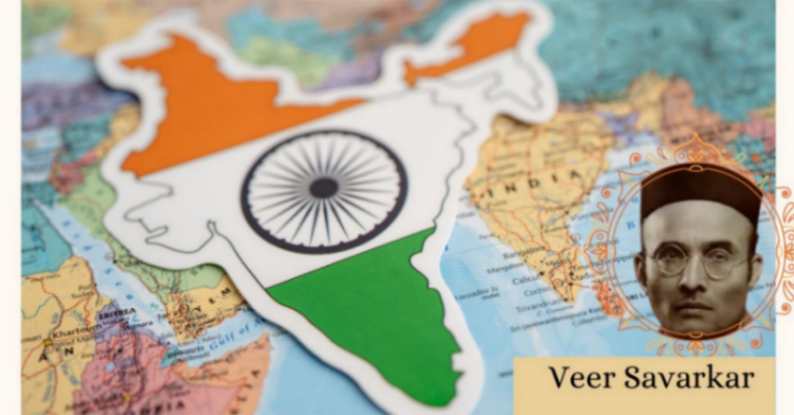Introduction
Veer Savarkar was a writer, speaker, organiser and a great Patriot. He had written many books. Savarkar had a very important role in the Struggle for freedom of India. This essay in 700 words examines in detail about Life and Struggle of Veer Savarkar
Early Life of Veer Savarkar
Veer Savarkar (Vinayak Damodar Savarkar) was born on May 28, 1883, in the nearby city of Nashik, Maharashtra. His parents were Damodar Pant and Radha Bhai. His parents had always encouraged him to read the Vedas, the Puranas, and tales of courage of the Rajas. Savarkar had developed a reading and writing habit.
Savarkar used to publish his poems in Pune’s top newspapers, when he was just ten years old. In 1893, there were riots in Bombay and Pune, and that incident formulated deep thoughts in his mind about religion. He began his rebellion against the British after having a vision of an independent India. Through his speeches, Savarkar inspired the young people in his immediate vicinity and founded a group called “Mitra Mela.” In Pune.
He launched the “boycott foreign goods campaign” and the Swadeshi movement. For the first time in India, foreign goods were burned in Pune as part of the Swadeshi movement. Savarkar graduated from Nasik in 1901 with a matriculation degree. Savarkar wed Yamuna Bhai in 1903. In the same year, Mitra Mela changed its name to Abhinav Bharath during a meeting in Pune.
When Savarkar arrived in London in 1906, he was 23 years old and enrolled in the barrister program. There, he carried on with his work in Abhinav Bharath and made contacts with other countries as well. He Published his famous book “First war of Indian Independence “in 1906.His books and talks about India’s cultural legacy and independence drew young people to that organization. Young Indians were prepared to take up arms in support of an independent India. Guns were smuggled into India. Due to some activities of rebellion many leaders of that organisation were punished by the British Government.
Following Savarkar’s arrest, the British government sent him by ship to India. Savarkar jumped into the ocean in an attempt to flee through the French Marseilles on his way to India. In 1911, he was once again captured, found guilty, and deported to the Andaman Islands. Savarkar wrote poems on the walls of the prison. He started imparting knowledge and reacquainting his fellow inmates with Sanathan Dharma. He had endured numerous hardships in that small confinement cell. 1921 saw him relocated to a prison in Ratnagiri. He came upon Khilafat movement prisoners there. His prison sentence was lifted in 1924, but he was still required to reside in Ratnagiri.
Savarkar criticized Gandhiji for his then-failed tactics, including the Khilafat movement and non-cooperation.
Savarkar an outstanding social reformer
After being released from prison, Savarkar became a member of the Hindu Maha Sabha and focused his social work on Hindutva ideology. Savarkar started embarking on lengthy travels and publishing his books. His idea of an independent India was one in which all people enjoy full rights without appeasement. He was opposed to discrimination and the caste system.
In an effort to establish mixed-caste schools, he battled traditional Hindus. With the involvement of all castes, Savarkar transformed the Ganesh Chaturthi festival and arranged marches for Dalits to enter temples. His advice was the driving force behind Netaji Subhash Chandra Bose’s founding of the Indian National Army (INA). All over India, Savarkar’s diamond jubilee was commemorated in 1943.
Gandhiji was assassinated on January 30, 1948. Following a police charge sheet and interrogation, Savarkar was found not guilty. After independence, Savarkar opposed the widespread conversions carried out by Christian missionaries. In certain regions of northern India, he was the person in charge of the coalition government of the Hindu Maha Sabha with the Muslim League.
On February 1, 1966, he gave up water, food, and medication in order to accept the imminent end of his life.
Conclusion
Veer Savarkar dedicated his life to making the country better. In his vision, India would be a secular, modern nation without appeasement of any communities. He publicly disapproved of any action that went against his vision. He disapproved of the prime minister Nehru’s stance on the war against insurgents in eastern India and with neighboring countries

